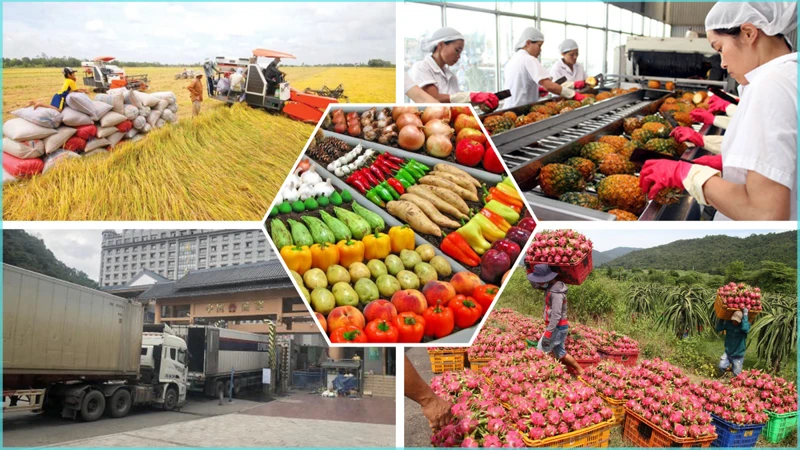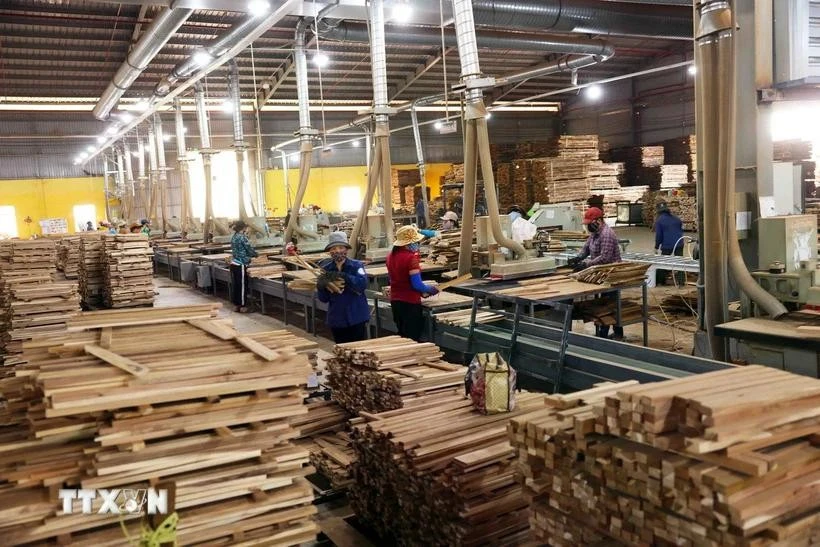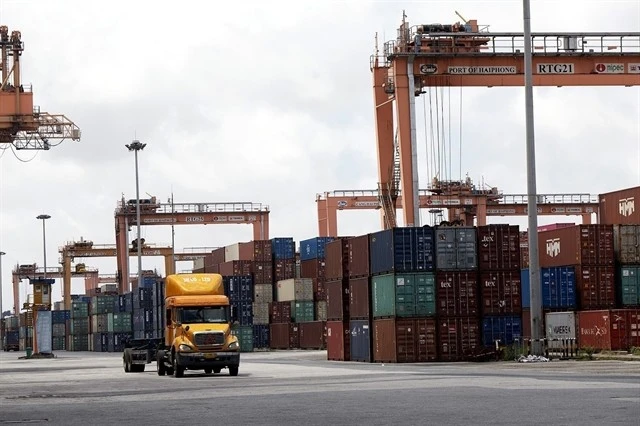In an increasingly volatile global economy, business connections have become essential for companies looking to grow and remain competitive, according to experts at the 2025 Business Forum held in Hanoi late last week.
 |
| Production at a small enterprise in Thanh Hoa province. Linkages will help small and medium sized enterprises diversify markets. Photo: VNA |
They also emphasised that fostering stronger connections across industries and supply chains can help Vietnamese enterprises navigate uncertainties and seize new opportunities.
At the forum, held by the Vietnam Chamber of Commerce and Industry (VCCI), Tran Thi Hong Minh, Director of the Institute for Policy and Strategy Studies under the Party Central Committee’s Commission for Policies and Strategies, said: "In a world of rapid and complex changes, linkages help businesses diversify markets, connect with new models and better use resources. They are also critical in mitigating risks and enhancing overall competitiveness”.
Vietnam’s deeper integration into the global economy makes such linkages even more critical. While some large Vietnamese firms have successfully entered regional and global value chains, Minh pointed out that the country still lacks large-scale enterprises capable of leading and connecting with smaller domestic firms to build internationally competitive industries.
Nguyen Trung Khanh, Director of the Vietnam National Authority of Tourism, echoed these concerns, noting how global disruptions, including trade protectionism, supply chain fragmentation, inflation and geopolitical instability - have made it imperative for businesses to work more collaboratively.
"Businesses, especially in sectors like tourism, must proactively build and strengthen partnerships across service chains to adapt and thrive", Khanh emphasised.
Despite their recognised value, linkages among Vietnamese businesses remain weak.
According to Minh, this is largely due to the limited capacity of small and medium-sized enterprises (SMEs) and gaps in institutional and policy frameworks.
“Current policies do not sufficiently support SMEs in improving their operations or accessing capital, thereby limiting their ability to participate in domestic and international supply chains”, she said.
Minh recommended developing more supportive policies - such as tax incentives, improved credit access and land-use support - for enterprises actively participating in business linkages.
Vietnam needs to have foreign investment policies that encourage collaboration with local suppliers, along with the development of free trade zones and industry clusters that foster connected growth.
Minh also emphasised the importance of nurturing large-scale private enterprises to act as leaders and coordinators, guiding smaller companies and helping them gain a foothold in global markets.
Meanwhile, Mac Quoc Anh, Vice Chairman and General Secretary of the Hanoi Association of Small and Medium Enterprises, said SMEs make up over 97% of Vietnam’s businesses, and contribute more than 40% of GDP and over 50% of the total employment.
“Supporting SMEs cannot rely solely on their individual efforts”, said Anh.
“It requires cooperation from government agencies, financial institutions and industry associations”.He called for comprehensive, long-term policies to support business growth, along with ongoing improvements to the business environment.
At the same time, he urged the business community to embrace digital transformation and innovative practices to improve governance and operational efficiency.
Phan Duc Hieu, member of the 15th National Assembly's Committee for Economic and Financial Affairs, stressed the role of institutional reform in enabling business success.
He argued that improving the quality of legislation and its enforcement is key to creating a more supportive and predictable environment for enterprise development.







